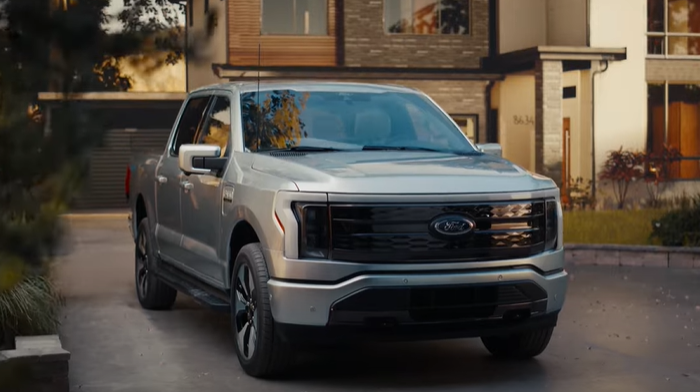Ford recently made a notable shift in its electrification strategy, announcing that it will pivot towards hybrid vehicles while scaling back some electric vehicle (EV) plans. The decision includes canceling a previously planned electric three-row SUV and revising the production timelines for other EV models. Here’s a breakdown of Ford’s new focus areas, upcoming vehicle updates, and what this means for the brand’s commitment to more sustainable mobility.
Ford’s New Electrification Path
In its latest announcement, Ford outlined a strategic move to focus more on hybrid models rather than fully electric ones for certain segments. The brand believes hybrids will offer consumers a more affordable and practical alternative while it works on sourcing cost-effective battery solutions.
- Shift in Investment
Ford plans to reduce its annual budget dedicated to fully electric vehicles from approximately 40% to 30%, reflecting its focus on hybrids. This adjustment is intended to make the most of Ford’s resources by blending hybrid technology with advancements in EVs, ultimately benefiting customers with more affordable and accessible options. - Why the Change?
According to Ford’s leadership, achieving competitiveness in battery costs is essential in today’s EV market. CEO Jim Farley emphasized that until battery sourcing and production costs become more manageable, hybrid technology serves as a viable bridge towards a sustainable future.
Hybrid Three-Row SUV Takes Priority
One significant change involves Ford’s decision to cancel its plans for an electric three-row SUV. Instead, the company will integrate hybrid technology into its upcoming three-row SUV models, an area in which Ford has observed strong consumer interest.
- Focus on Multiple Models
Ford’s announcement hinted at multiple hybrid three-row SUVs, although it remains unclear exactly how many will be produced. By going hybrid for this segment, Ford aims to offer family-oriented vehicles that balance fuel efficiency with cost-effectiveness. - Expansion of Hybrid Powertrains
Ford’s hybrid focus doesn’t end with SUVs. The brand also plans to introduce hybrid options for its renowned F-Series Super Duty pickups. This development marks a significant expansion of Ford’s hybrid offerings, appealing to a wider range of consumers seeking both capability and efficiency.
Revised Timeline for Ford’s Electric Van and Next-Gen Trucks
Ford’s updated electrification roadmap also includes changes to its commercial and pickup truck lineup, with new timelines set for its EV van and future electric trucks.
- Commercial EV Van in 2026
Production of Ford’s next commercial electric van is now slated to begin in 2026 at its Ohio Assembly Plant in Avon Lake, Ohio. Originally intended for an earlier release, the delayed schedule allows Ford to focus on refining the vehicle’s cost structure and supply chain for batteries, making it more competitive in the commercial EV market. - Next-Generation Electric Truck Pushed to 2027
The production start for Ford’s anticipated electric pickup truck, codenamed Project T3, has been postponed to the latter half of 2027. Originally scheduled for 2025, this delay will give Ford more time to adopt cost-saving battery technologies and other advancements, ensuring the truck is competitively priced and technologically up-to-date upon release. - Introduction of a Mid-Size Electric Pickup
Alongside the T3, Ford has plans for a mid-size electric pickup expected in 2027, designed by its innovation-focused “skunkworks” team in California. While details remain limited, the addition of this vehicle highlights Ford’s intent to expand its electric lineup in diverse segments, appealing to drivers who need the versatility of a pickup in a smaller, electric-powered format.
Battery Sourcing Efforts and Cost Reduction Goals
Ford’s evolving strategy also places a strong emphasis on reducing battery production costs, a critical step for competitive EV pricing. The automaker is relocating part of its Mustang Mach-E battery production from Poland to Holland, Michigan, in 2025. This shift aims to secure Inflation Reduction Act benefits for the brand, further lowering costs and increasing incentives for U.S. customers.
- Competitive Battery Pricing
Jim Farley has stressed that reducing battery expenses is non-negotiable for remaining competitive in the EV market. Ford’s decision to reallocate battery production highlights the automaker’s dedication to optimizing costs without compromising on quality.
Conclusion
Ford’s refined electrification strategy showcases a realistic approach to balancing hybrid and electric technologies while navigating current challenges in the EV market. By postponing some EV launches, expanding hybrid options, and focusing on cost-efficient battery solutions, Ford is positioning itself to cater to a broader customer base. This strategic shift reflects Ford’s commitment to sustainable innovation, with a flexible roadmap that adapts to market needs and economic considerations.
